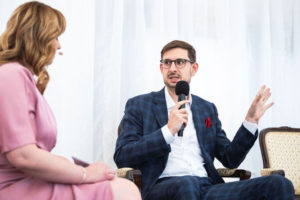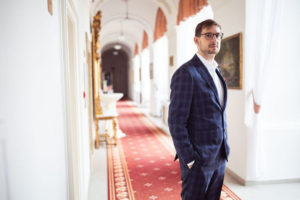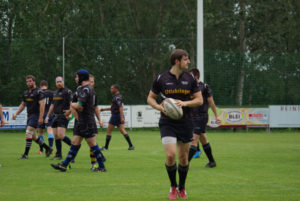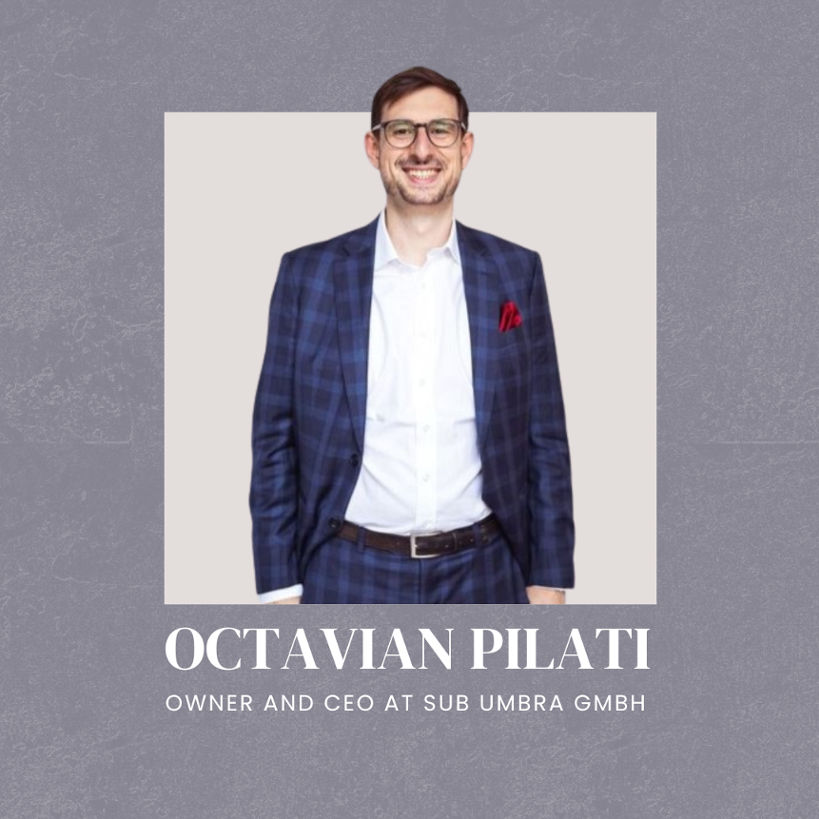CATEGORIES
Entrepreneurial Mindset | People We Admire | Work CultureOverview:
- Grew up in Austria, surrounded by aristocratic traditions that shaped his early perceptions and interactions.
- Inspired by stories from his mother about his grandfather who was a military engineer, Mr. Pilati pursued mechanical engineering and later took on significant roles in the family business.
- Advocates for turning adversity into opportunity and believes in the importance of continuous learning and self-improvement.
1. Could you kindly tell us about your childhood and the influences that have led you to where you are today?
I grew up locally with my parents, where we used to have our estate in Austria. My nanny took care of most of my upbringing. When I was about 10 years old, I started attending boarding school, but before that, I went to a school with local kids. I mostly saw my parents on weekends and during the week I stayed with my nanny.
One experience I often share to give perspective is that I’m from an old aristocratic family in Austria. We used to own a vast area of land where I grew up, and many people used to work for us in the past. Even though I was a five-year-old, people would call me by my aristocratic title, which was confusing at that age. In German, there is a polite form of speaking and an impolite form. With kids, we usually speak in impolite form, but I was addressed with the polite one, which added to my confusion.
I studied mechanical engineering, mostly influenced by stories my mom told me about her father, a military engineer in Italy. It’s one of the things that brought me onto the trajectory of studying engineering. However, the experiences with the family and growing up with a background of history and legacy is one of the main influences that has driven me into what I do these days.

2. Succession planning is like a crucial aspect of family business. Could you share some of the best practices or strategies you recommend for ensuring a smooth transition of leadership?
Each family is different from any other, with different characters, history, types of assets, etc. My suggestion when it comes to best practices is to treat it like a design process so as to design a succession plan that fits each family’s unique needs and wants.
As is obvious, that’s a lot of work. It involves the need to speak to everybody in the family, finding out if there is any family member that wants to take over leadership and if yes, then assess if they are competent to do so and so on. If not, how can we make them competent?
From my experience, some families either force a competent but unwilling person into the leadership position, which usually does not work very well, or they don’t allow someone who’s motivated but incompetent to take it on. It’s usually these two scenarios that require a solution. In short, if there’s one best practice, it’s having a lot of mediated conversations around this topic.
3. You use the GC index to help families work on their cohesion and on their understanding of each other. Would you like to share more about how the GC index works and how it supports productive conflict on business families?
I discovered the GC index through a coach. What’s so interesting about the GC index is that it’s not a personality test but an organimetric. It measures the type of things that engage and energize a person in a work setting.
The GC Index identifies five distinct stereotypes through scores, based on the person’s preferences. The test helps identify what types of work a person enjoys, dislikes, or is indifferent towards. Some might have a low score in detail oriented work but may score high in something else. The interesting part is that, oftentimes it also drives conversations in the families – “Oh, this person wasn’t sloppy, they’re just not suited for this kind of work.” One can also predict areas of conflict based on the score results for various sections, which is great as identification of the issue is the first step to overcome those challenges.
4. As you progressed in your career, what were some of the biggest challenges you faced personally or professionally and how did you overcome those?
One of the earliest challenges I faced was going to boarding school in the UK at the age of 13. It was a significant experience, as I was in a different country, far away from my family and everybody I knew. I had to adapt quickly to the people, language and culture.
The next challenge I faced was managing a business crisis between 2015-2018. I was 25 years old when I had to take on this role of the “crisis manager” for my family business. Looking back, I realize that I was clueless and basically just a grown up kid! I made the mistakes most people my age make- sleeping too little, eating crappy food, making up for the lack of knowledge by working too hard, making many mistakes and trying to cover them up too.
When you’re dealing with a crisis, you don’t have time to obsess about your failures. You cannot stop and sulk or lament, “This is terrible” because the stakes are too high. You have to carry on so you must pick up the pieces and process your failures quickly. You are your greatest resource. You have to maintain good habits as failure can take a toll on your mental and physical health, and worsen your performance down the road. In short, you must persevere despite the adversities. Rejection and failure are simply redirections on your journey.

5. If you could go back and do one thing differently in your career, personally or professionally, what would it be?
There’s many things I would have changed. It’s something I spend a lot of time thinking, “Oh, I should’ve done this” or “I shouldn’t have done that.” But no one can know what would’ve happened if I had made those changes. I can’t say if making those changes would have made me successful. The only certainty is that nothing is going to happen exactly the way you plan it. None of my plans have worked exactly as I envisioned them. If this question was asked a few years back, I would have provided a list of things I would have done differently. But now, I understand that it’s a mix of all the decisions I made that led me to where I am today, and I wouldn’t change anything.
6. As someone who’s had the experience of having spoken at several family business conferences, could you share some valuable insights that you learned from them?
You meet peers with similar backgrounds and interests, and come across people who’ve had similar experiences. This can be advantageous if you know how to network. Unfortunately, networking hasn’t always been my cup of tea. I’m the kind of person who goes to a conference, stands in a corner with my cup of water, not speaking to anyone, and comes back home when it’s over. However, I noticed others making conversation and forming meaningful connections. That’s when I decided to start speaking at these conferences. By discussing a topic I had a grasp on, like crisis management, I attracted people who would come talk to me later. This approach helped me build valuable connections.
You find that most of the people in your field have similar problems and challenges. Exchanging ideas and perspectives can help overcome those challenges by approaching them differently. Another observation I made is that people are often not what they seem to be. At family office conferences, for instance, some people genuinely care about helping families manage generational wealth, while others might take advantage of them. The latter category is to be avoided at all costs.

7. What is it exactly that motivates you to continue sharing your experiences in these family business communities?
Most of the world’s GDP stems from family businesses, which employ and sustain a vast number of people across the world. Therefore, I like to believe that resolving internal conflicts and dysfunctions within the family unit impacts the world, at least slightly so. Another driving factor is the desire to help families overcome the pain of dysfunction. Strain within familial ties can cause extreme emotional distress. Oftentimes, this leads members to act out from a place of ego or narcissism. I believe families can collaborate more effectively amongst each other once we work with them to improve the family dynamics. There’s a personal fulfillment I gain from this process; I simply enjoy it. This work allows me to continuously learn, share knowledge, and teach others. It’s something that brings me both joy and satisfaction.
8. What is your favorite thing about the industry that you work in and what is your least favorite thing about your industry?
My favorite thing about the industry that I work in is its diversity. There are numerous aspects to tackle, which needs a broad understanding of a range of things to be on top of the field. I’ve had to learn about tax structures, psychology, philosophy, amongst others. On the other hand, what I dislike the most is the lack of awareness among families with generational wealth. One of the most effective ways to mitigate problems within a family is by actually working on relationships and investing in the family unit. I encourage families to invest in themselves and educate themselves so they make informed decisions. Sometimes it’s extremely difficult to see families making the same mistakes that could have been easily avoided if they were more aware.
9. What do you do in your personal time to balance your life?
I like to read a lot, particularly fantasy novels, which I often spend my evenings doing before going to bed. Amongst fantasy books, Brian Sanderson’s The Starlight Archive is my favorite. In the non-fiction genre, I would pick Man’s Search for Meaning by Victor E Frankl, which chronicles his experiences as a prisoner in Nazi concentration camps during World War II.
I don’t play sports competitively anymore, but I do attend regular training sessions with a physiotherapist, and still enjoy playing online. People call it esports, but it’s essentially just gaming. So I’ve switched my competitive energy into online gaming, where I play in a clan and participate in matches.
I also try to practice meditation, though I’m not very consistent with it. One habit I’ve picked up and maintained for some time is journaling. Since the last two years, I’ve made it a point to answer a set of questions in the evening for myself. Each of these questions focus on something that I learnt that particular day, and I publish my thoughts nearly every day called “Daily Thought.”
10. You were in the Sevens national team for Austria at some point. Can you tell us a little bit about your experience there?
I began playing rugby when I was in boarding school in the UK. At the age of 13, I attended a choir school in Austria (age 10-13), and then at 13, I moved to the UK to attend a private school where I picked up rugby. I continued playing rugby when I returned to Austria at 18 and participated in several tournaments with the Austrian Sevens rugby team.
It’s worth noting that Rugby Sevens in Austria is not as big as in countries like South Africa or England. Austria is relatively small, so while being a part of a national team is an achievement, it doesn’t carry the same weight as it would in other nations.
It’s kind of like an underground movement here in Austria. It was interesting because rugby is not a professional sport here, and so you don’t have a good support system. Many of the costs you have to cover yourself. Coming from a background with money, I had a bit of an advantage and it was easier for me to go to gyms and pay for travel costs. I stopped playing at around 27, having picked up a few injuries over the years. That’s when I decided that it was time to move on.

11. What is a mantra or quote that resonates with you? Something that you live by every day, no matter what your mood is, no matter what the situation is?
I don’t have a particular mantra or quote, but on days when I feel demotivated due to unmet tasks or a messed-up schedule from jet lags, I try to regain control by maintaining my habits. Like, making my bed no matter how bad my sleep was, and finding time to jot down my daily thoughts. I also have days when these habits falter so I try a bit harder to focus on the present moment by being more mindful about my surroundings. As a huge coffee enthusiast, I enjoy the long process of making my own coffee. I try to slow time down, smelling the aroma and feeling its texture. I’m working on improving my ability to enjoy the present moment, otherwise we might miss a lot of things.
12. What advice do you have for young people who’re in need of some direction in life?
I always encourage people to turn adversity into opportunity. For instance, during a crisis in our family business, I had the opportunity to manage the family. We had to sell our business because we couldn’t manage restructuring back then. Reflecting on it later, I realized that every event in life has its upsides and downsides. If you look at it a bit philosophically, you will notice a balance of good and bad in anything that happens in the world. Usually, a situation might seem bad because you perceive only the bad aspects of it.
A quote I hold close to my heart is, “Opportunity is basically when luck is met by preparation.” Looking at wildly successful people, it’s easy to say they were just lucky, but what’s often overlooked is their hard work and preparation that helped them take advantage of a lucky situation. They saw an upside in adversity which led them to their success.
It’s easy to put a lot of pressure on yourself in your 20s to find the perfect career or passion. But, your 20s is a time when you should focus on getting to know yourself better, trying out new things, learning what you enjoy and ultimately discovering what you’re good at. My advice to young people would be to not be too hard on yourself. It’s perfectly fine to have moments in your life where you feel like you want to give up everything. Sometimes you will also give up on things, that’s fine. But that phase, like everything in life, is temporary and you will only come back stronger.
Conclusion:
Octavian Pilati, born an Austrian aristocrat discusses personal growth strategies that helped shape his career in family business.


